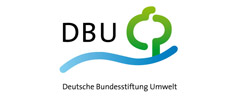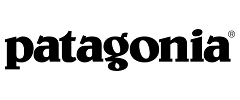How Can Sanitation Improve Nutrition and Food Security?
This year’s Stockholm World Water Week focused on food security. Although there is some progress towards greater policy coherence in this area, a lot more needs to be done on policy and implementation levels to make sure WASH is part of the solution to undernutrition)
19.09.2012 |Claudia Wendland

Thilo Panzerbieter (GTO) introduced into the session by reminding everyone that food security is about food production and access but it’s also about utilisation of food and this is where water, sanitation and hygiene (WASH) comes in. People need access to sufficient food but they also need to be able to absorb the nutrients.
In the first presentations, Oliver Cumming (SHARE/LSHTM) and Robert Chambers (IDS) set the scene and reviewed the evidence linking WASH to undernutrition. It is estimated that over 30% of children (UNICEF 2008) in low income countries are affected, and undernutrition causes over two million child deaths death each year (Black et al 2008). He described how poor WASH contributes to this problem in three key ways: (1) continuous diarrhoea lead to malabsorption of nutrients, (2) soil transmitted helminth infections or parasitic intestinal worms, due to lack of proper sanitation (Ziegelbauer et al 2011), (3) through a condition called ‘environmental enteropathy’ characterised by increased gut permeability and nutrient malabsorption (Humphrey 2009).
In the following presentations, three practical responses in terms of WASH interventions were given to support efforts to reduce undernutrition. Robert Chambers, replacing Kamal Kar of the CLTS foundation, gave a presentation about how community-led total sanitation (CLTS) is one way to do this. He called for a new category of diseases - Faecally Transmitted Infections (FTIs), so that it becomes apparent for everybody how important sanitation and hygiene are.
Almud Weitz and Juan Costain from the World Bank’s Water and Sanitation Programme (WSP), reported about efforts to link sanitation to Conditional Cash Transfers (CCTs) in Indonesia. CCTs are an increasingly popular means to reach poor and vulnerable communities and households. Whilst CCTs have been used extensively in health and education, WSP started now CCTs for sanitation as well.
Linus Dagerskog (SEI) and Moussa Bonzi shared the experiences of an productive sanitation programme in Burkina Faso. Whilst other presenters had focused on the risk posed by faecal waste, this presentation highlighted the opportunity. If managed safely, human waste – urine and faecal matter from ecosan toilets - can be used as fertiliser to increase agricultural yields, so that people are provided with a hygienic toilet and get better harvests like also WECF experienced in different countries in the Caucasus and Central Asia working on productive sanitation.
In the second part of the seminar, Sanjay Wijesekera from UNICEF tasked the audience to discuss a few key questions in a world café format.

Claudia Wendland, sanitation coordinator at WECF was facilitator of one the tables and reported about intensive discussions among participants who, being from different sectors, are not always aware of the important link between WASH and nutrition, often mentioned issues of working in sector silos, speaking “different languages” and institutional fragmentation.
As conclusion, the “No food and nutrition security without water, sanitation and hygiene” seminar contributed to a better understanding how undernutrition is a key issue for the WASH sector. Although there is some progress towards greater policy coherence in this area, a lot more needs to be done on policy and implementation levels to make sure WASH is part of the solution to undernutrition.
Please see the short movie summarising the seminar: http://www.washnet.de/aktivitaeten/world-water-week-2012/
WECF is member of the German WASH network www.washnet.de
Related News
Calling for periods free from plastic & hazardous chemicals
Letter to Frédérique Ries, MEP, European Parliament on behalf of the #BreakFreeFromPlastics movement
04.09.2018
Together for sustainable sanitation and water security worldwide!
Stockholm, 26-31 Aug 2018: WECF participated in the World Water Week 2018 to further support the worldwide implementation of SDG 6
01.09.2018
Fifth meeting of the Expert Group on Equitable Access to Water and Sanitation, 26 - 27 June 2018
WECF shares experiences on developing and implementing Equitable Access Action Plans
27.07.2018
National Round Table and Training on Drinking Water Issues and Priorities in Macedonia
Working Package 2 – Educational measures for responsible institutions and drafting of regulations, among the on-going project „Water and Sanitation Safety Planning in Romania, Albania, and FYR Macedonia”
27.07.2018
Training for Teachers on Water and Sanitation Safety Planning
Women in Development and WECF organise a 2-day workshop in Shkodra region, Albania
27.07.2018






































